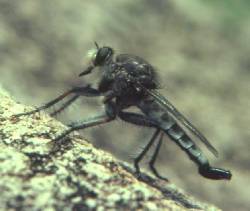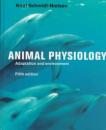- Current Assignments.
- Course Objectives and Description.
- Class Schedule.
- Physiological Ecology Research and Educational Resources.
- Please Read This Comment.
| BIO 401. Life at the Edge: The Physiological Ecology of Extreme Environments.
Dr. Bruce W. Grant and
Dr. Itzick Vatnick
|
| ||
| |||
|
Course Objectives and Description. (1) You will better understand the evolutionary adaptation of physiology to environment, i.e., the problems that the biophysical extremes of this world impose upon life and the solutions that have evolved in response. This course will deal with the evolutionary adaptation of physiology to environment (e.g., temperature, water, light, salinity, pressure, nutrients, and toxins). Students will learn how individuals interact with their biophysical environment, and how physiological processes offer integrated responses to environmental stress. Examples will illustrate adaptation to warm desert environments, arctic and alpine environments, freshwater and saline wetlands, deep sea environments, and human-disturbed environments. Although topics represent the extremes of this world, an important message is that over evolutionary time all environments are variable and the evolutionary rules affecting physiology at the extremes apply everywhere life is always at the edge. Underlying themes of this course are the similarity of solutions to common problems (such as adaptations to water stress in deserts and saline wetlands) and the multiplicity of solutions evolved among life forms to the same environmental stress (such as the diversity of temperature regulation modes in thermally heterogeneous environments). We will primarily focus the course on animals; however, moneran, protistan, fungal, and plant adaptations to environmental stress are also excellent sources of independent research projects (described below) and we encourage students to pursue whatever interests them. A major venue for the teaching and learning of these basic principles of physiological design will be a seminar-style weekly discussion class of primary literature from the field of physiological ecology. For this, you must locate, interpret, and critically analyze published journal articles relevant to the course topics. More details on this will be presented in class. (2) You will understand the process of physiological inquiry which is the scientific method, through which natural phenomena are observed, interpreted, and reported. Through the scientific method one gains an understanding of our natural world and the effects of human activities upon it. A major portion of this course is dedicated to student-designed independent research projects involving laboratory experiments on any topic of the your interest in physiological ecology, and using available equipment funded by an NSF ILI grant to Dr's. Vatnick and Grant. You will select a research topic, make an oral proposal presentation, conduct the research, and present an oral talk and poster at in-class research symposia toward the end of the semester. In addition, you must locate and interpret background literature relevant to each your research project and lead a group discussion of your literature during one of the weekly lab meetings/ seminars. (3) You will improve your cognitive skills at critical thinking and reflective judgement. Through the processes of designing, conducting, and presenting your own course research project, and of reading and critically analyzing published research results to understand the basic ecological and evolutionary principles of physiological design, you will be using and improving your higher level thinking and information processing skills. These are the kinds of "good thinking" skills that are essential in grappling with "problems for which no clear-cut solution can be identified by using only inductive or deductive logic; solutions to these problems involve other characteristics of reasoning." (King and Kitchener 1994). In this course, you will construct your own understanding of physiological phenomena (as constrained, facilitated, and calibrated by us). Through this process, you will be challenged by complex, multifaceted, novel, and unexpected conceptual, scientific, educational, social, and technical problems. This is what research is all about. You'll need to use your head to solve these problems. Intellectual growth will result. Course Requirements. Attendance is required and will benefit your grade. Missed in-class assignments, quizzes, etc. cannot be made up unless extraordinary circumstances are documented for one's absense.
Since this course includes an intensive writing component (essay-based exams, a major research paper, etc.), an additional text I require you to access is the Elements of Style by Strunk and White. This is one of the best books on English usage ever written, and should be one of the most important books you will buy (or bookmark) and read as a student. Note: if you want to access a web-based version of this text for free press http://www.bartleby.com/141/index.html. Friday Seminars. During this semester, we will devote the Friday 1:00 class periods to seminar-style discussions on topics of relevance to this course. We will lead the first one of these to give you the idea about the format, and then you will take turns leading the others during the rest of the semester. For each seminar, the seminar leader(s) will select a research paper, review, etc., and we will copy and distribute it to the class. You should sign up for a seminar date and topic as soon as you can. Course Assessment. There will be a midterm and a final project exam (no FINAL exam), weekly assignments, and weekly lab meetings/seminars at which research papers will be discussed. A detailed breakdown of the components of assessment in this course appears below:
Fall 2003, Class Schedule.
Physiological Ecology Projects Students Have Done.
Physiological Ecology Research and Educational Resources.
|


